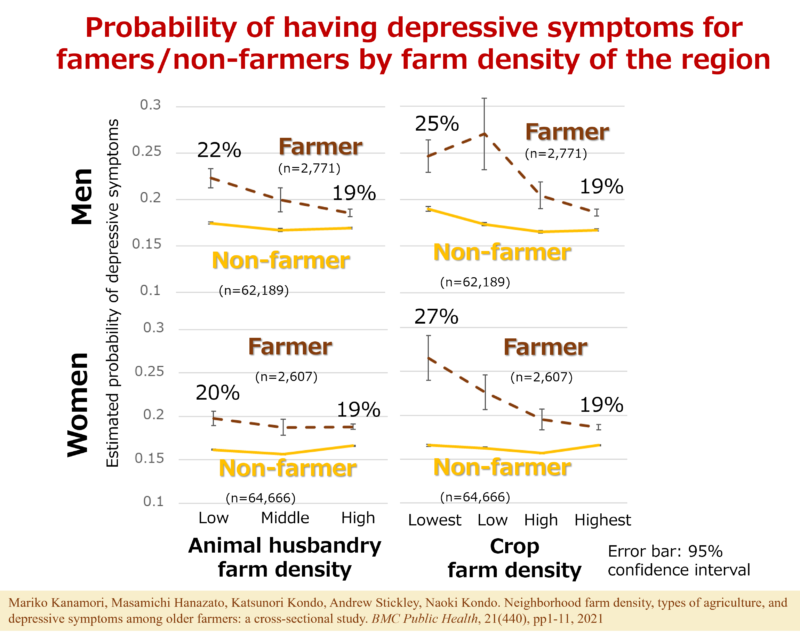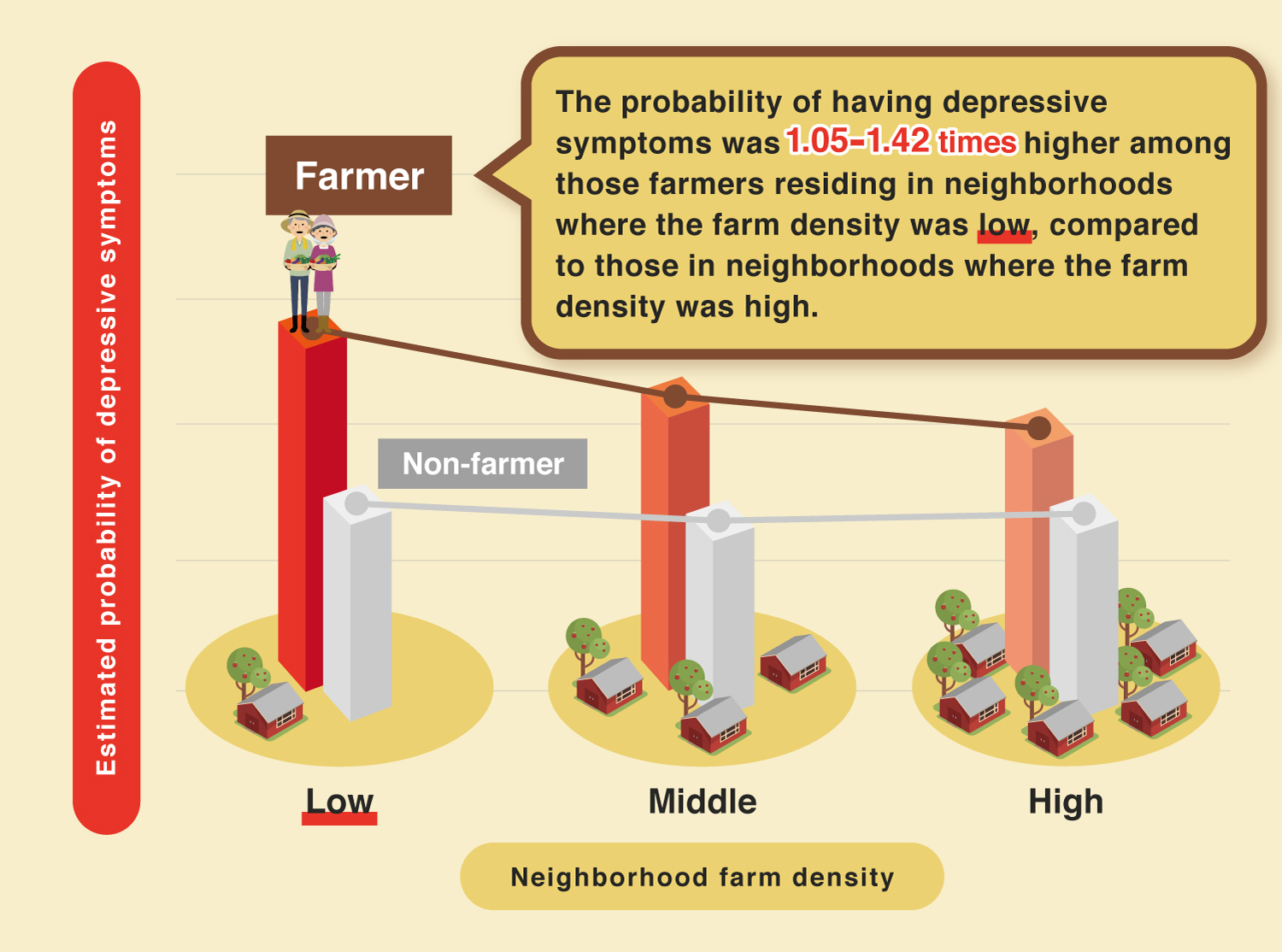Social connections between people in the same profession that are not dependent on geographical distance may be needed
Farmers worldwide have been reported to be at high risk of depression, but few studies have examined which local environments are associated with it. We examined whether the probability of older adults having depressive symptoms varied according to the farm density in the school district where they lived. We found that depressive symptoms were 1.05 to 1.42 times more prevalent among those with long farming experience who lived in areas with fewer farms per capita. On the other hand, depressive symptoms tended to be less common in areas with many farms in the vicinity. This was true for both men and women, regardless of the type of farming (e.g., livestock or crops). This may be related to the fact that when there are fewer farms in an area, there are fewer social connections and activities, or it may be more difficult to maintain support systems. It is important to support farmers to continue farming or improve connections to allow them to connect with each other without being bound by traditional regional boundaries.
Background
Various countries have reported that farmers are at high risk of depression and suicide. This is considered to be due to international issues such as increasing international competition, decreasing number of farms, and climate change. In Japan, the farmer population is declining and aging, and those who have been engaged in farming for a long time may have experienced many partings from friends and colleagues in the neighborhood. The reduced opportunities for community ties and mutual help may have had a negative impact on the health of farmers. However, no studies have focused on the structural aspect of farming and examined its impact on mental health. We therefore compared the prevalence of depressive symptoms among farmers according to the number of farms in the region (farm density).
Methods
We included 147,549 elderly people aged 65 years or older living in 39 municipalities across Japan who participated in the 2016 wave of the Japan Gerontological Evaluation Study. We consolidated government agricultural statistics data and calculated farm density, which is the number of farms divided by the population, for each school district. The respondents who answered “agriculture, forestry, or fisheries” to the question ” What is the type of occupation that you have participated in for the longest period in your life?” were classified as being “farmers”(n=5,378). We adjusted for climatic factors (daylight hours, rainfall, and mean slope angle), population density, individual age, educational background, household income, marital status, living alone or not, and the administrative regions in Japan. We conducted a multilevel analysis to account for variation in responses by municipality, school district, and individual.
Results

Farmers tended to be slightly more depressed overall than non-farmers (19.1% for farmers and 16.7% for non-farmers). When estimates of the probability of having depressive symptoms were calculated for each farm household density in the school district in which they lived, among farmers, depressive symptoms tended to be more common among those who lived in areas with lower farm density. This association was found for both men and women, regardless of type of farming. Compared to the probability of depressive symptoms among those living in areas with the highest farm density (19%), the probability was 1.16 times (22%) higher for men and 1.05 times (20%) higher for women living in areas with the lowest animal husbandry farm density, and 1.32 times higher (25%) for men and 1.42 times (27%) higher for women living in areas with the lowest crop farm density.
Conclusion
Our findings suggest that the farm density in the community may affect the mental health of farmers. Fewer farms in the community may be related to fewer opportunities to discuss common farmer topics and fewer community activities such as festivals and events, which may be related to a higher risk of depression. It may also make it more difficult to maintain various support systems. It may be important for the mental health of farmers to create an environment in which it is easy to continue farming regardless of the size of the farm, and to create a system in which farmers can connect with each other without being bound by the traditional boundaries of the community.
Significance of this study
This is a world-leading study that assessed the impact of structural aspects of the agricultural sector on mental health. It showed the importance of the perspective of farm density as well as the production of agricultural and livestock products in agricultural policy and regional development.
Published Paper
Mariko Kanamori, Masamichi Hanazato, Katsunori Kondo, Andrew Stickley, Naoki Kondo. Neighborhood farm density, types of agriculture, and depressive symptoms among older farmers: a cross-sectional study. BMC Public Health, 21(440), pp1-11, 2021. https://doi.org/10.1186/s12889-021-10469-6
Acknowledgments
This work was supported by grants from the Institute of Medical Science, JSPS, Grant-in-Aid for Scientific Research on MHLW, the Japan Agency for Medical Research and Development (AMED), the National Institute for Longevity Sciences, and others. We would like to express our deepest gratitude to all of them.



コメント